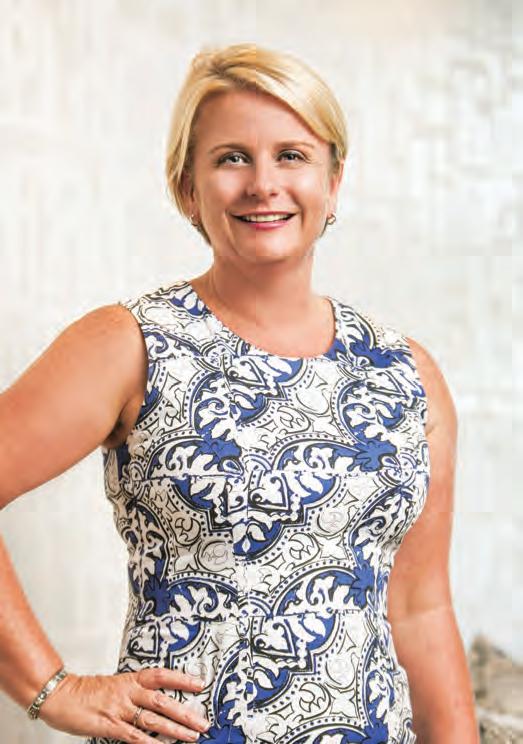
3 minute read
Hard - wired to SURVIVE
from KZN Invest 9
The hospitality industry may be reeling from the pandemic, but local travel could be the light at the end of the tunnel
Samantha Croft, the KZN director of operations for Tsogo Sun – probably the biggest single operator in the hospitality business in the province – says the pandemic has smacked the industry.
Advertisement
According to the Tourism Business Council of South Africa (TBCSA), since the start of the national lockdown at the end of March, over R68-billion in tourism spend has been lost.
There is not one hotel operator unaffected, said Croft. Weeks ago US Marriott group announced they would stop operating three local hotels, including Durban’s iconic Edward Hotel. (Tsogo owns the properties and will take over the running of those hotels.)
“We are looking at huge job losses across the sector,” she said. “The closures of all hotels since the start of lockdown have had a dire impact on related services, for example, the laundry industry, cleaning services and security services. The meat bill for the Elangeni Maharani is around R800 000 during normal trading. Since lockdown, it’s been zero.”
Tsogo Sun has implemented a salary cut across the board. But from a team perspective, Croft is encouraged by how employees have pulled together. “During full lockdown, many staff members offered to come in and work for no pay to help keep the company going.”
ABOVE: THE NEW NORMAL WILL BE A LEANER, MORE BROADLY TRAINED WORKFORCE, WITH A FLATTENED HIERARCHY, SAYS SAMANTHA CROFT, KZN DIRECTOR OF OPERATIONS FOR TSOGO SUN.
Hotels opening for business travel at the beginning of June brought some light to a very dark tunnel, but it’s a very different state of affairs. “Hospitality is now not so hospitable,” says Croft, “and it is very hard for us. We are hard-wired to provide hands-on service. Now, we cannot hand someone a cup of coffee – they must take it off the tray themselves; guests must carry their luggage themselves or agree to it being sprayed down first. Thanks to masks they cannot see us smile. We cannot shake hands. We don’t even have evening turndown as we must minimise contact.”
There is every attempt to make the guest experience less clinical – at the Beverly Hills, for example, aromatic candles have been placed in the lobby “but the guest still cannot see if we are smiling or scowling!”
The workforce will need to multi-task going forward. “The person who greets you will be the person who takes your drinks order and serves your food. The new normal will be a leaner, more broadly trained workforce, with a flattened hierarchy. In essence, we have to work as economically as possible without impacting on the customer experience.”
From a more positive perspective, Croft is looking forward to looking after local travellers. According to Stats SA, in 2018 South African residents spent R84-billion travelling abroad, and as Croft points out, these same people will not be travelling overseas in the short term.
“So we need to encourage them to explore their own country. We need to become more creative and diversify in order to appeal to a range of local markets. We want to offer deals that include the berg and the bush for example, and not just the beaches.”
Durban, she says, is optimistic about picking up on leisure travel in December.
“We will be offering packages that will be more attractive than last year’s. We are encouraging all South Africans to take a much-needed break – we know that people want to get away.
“We are not expecting a boom, but we definitely want to see December in Durban getting back to normal.” *











